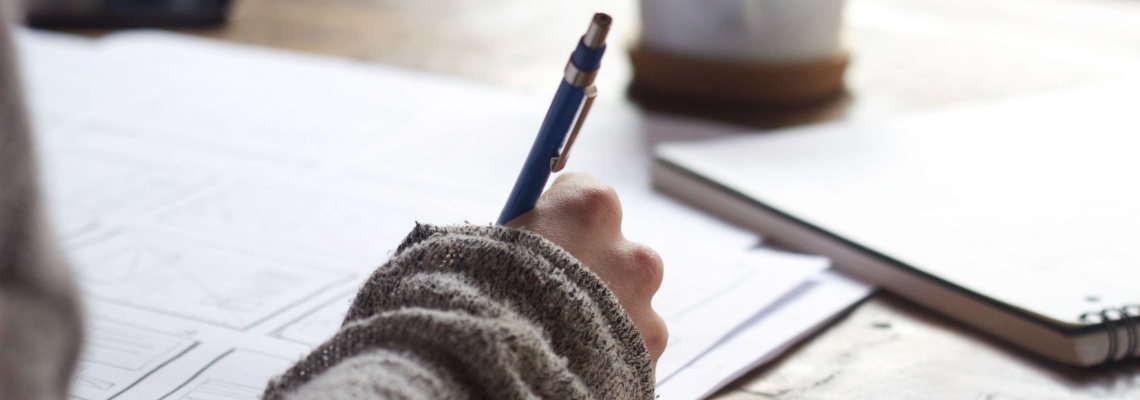Exam time is coming up and it means a lot of things. It means that the end of the school year is in sight, which is a relief for many. It also means that you are putting in extra study hours, perhaps forming study groups and nerves may be on edge. However to reduce nerves, there are some things that you can do and most of it involves something we don’t like to do during exams or when projects are due: Sleep
Sleep
I remember in university it was a rite of passage to pull ‘an all nighter’. In fact, it was the worst thing we could do for ourselves. It is so brain incompatible. The brain on lack of sleep functions very differently from a brain that functions on a full night’s sleep. You, as teens, need about 9.5 hours of sleep. I know that you rarely get this. But, your brain rejuvenates, and during exams, your brain needs to rejuvenate.
Don’t give up on your sleep. It does not serve you well if you are ‘sleepwalking’ through your final exams, or sleepwalking through anything. I remember when my husband had a medical emergency and I barely slept. It was tough making important decisions. The same can be said for taking exams.
Here are some good suggestions adapted from University College London, Dr. Guy Meadows
Avoid cramming for exams
I will admit, I am guilty of this from my university days. I can say, I am guilty of this with projects for World Student Support. Neither serve(d) me well. Many know about Rapid Eye Movement, known as REM. REM is when memory is stored and cramming doesn’t allow enough time for this stage of sleep to store memory. In other words, give yourself some lead time.
Caffeine
We love our caffeine. I had a caffeine ritual for years that I had to give up. Two cups in the morning, one cup after lunch. Caffeine we know is a stimulant, it’s supposed to keep us awake. Caffeine is designed to keep us awake, so take care when drinking in the afternoon or evening because caffeine stays in the body for up to 12 hours. Switch to an herbal option in the afternoon. You want to sleep.
Exercise
Often, we ‘blow off exercise’ during exam time. Exercise serves many purposes. It is a stress releaser, as well it assists some in generating ideas. It also helps you sleep better. Whether it’s a walk around the block, lifting weights, yoga… take 30 minutes to exercise your body and release your mind.
Electronic Devices
Turn off your devices before going to sleep at least 30 minutes, if not more, before going to sleep. Longer if possible. Don’t even talk on the phone. Take this time to be with yourself. Leave devices out of the bedroom, though, I know that many use the alarm on their phones. Use the Do Not Disturb function on your phone.
UnWinding
Don’t go straight to sleep after a study session. Your brain is still churning with facts and won’t turn off. While I am not studying for final exams, I still know what this feels like. Take a bath, listen to music, read, get your brain to relax.
Power Naps
Sometimes, we are on the verge of exhaustion during the day while studying. Go ahead and take a power nap. It can’t hurt, sometimes, we just need those little naps. They are rejuvenating. A nap is a nap, not a deep sleep. No more than 30 minutes should suffice.
Journaling
One of my students from a few years ago journaled on a daily basis. She kept a journal at her bedside and this became a daily ritual. Our current First Lady, Jill Biden encourages this practice. Journaling doesn’t mean perfection. It can be a reflection on the day, It’s meant to be private, you can log your dreams (and clearly, COVID has conjured up some strange dreams), you can draw, doodle or make art, use it as a scrapbook, reflect on the day or set goals. It can just be a ‘take five’ out of your day to reflect and set goals. I tend to wind down my work day, clean my desk and set my goals for the following day.
As we all know, the First Lady, Jill Biden is a Professor of English at a community college. She endorses journaling. She gave this advice the other day while in Arizona (from CNN) about living through the time of COVID, but the prompts could actually be used for any time of challenge as well:
“Just look at this time, don’t forget it, and think about: what did you learn about yourselves? Were you stronger than you thought? Were you, maybe it was harder than you thought? Did you change in some way? Did you find that you were kinder, or did you find that you, you know, maybe felt sad so many days? So, write this. Write it down,” she said.
“If you can pull out your journal. And remember how you felt, I think it’s going to be so important, and it’s actually going to be history for your family about what this time means.”
Reading to Unwind
I love to read before closing my eyes. The best thing is to read a real book, not on an ipad or Kindle. Read something that is of interest outside of academics.
While this is a stressful time, and yes, some of these exams appear to be stressful because some might determine where you will end up at university, remember, in the words of Frank Bruni’s infamous book: ‘Where you Go is Not Who You’ll Be’
Wishing you luck and Good Health
Thanks to UCL and Dr. Guy Meadows, CNN


